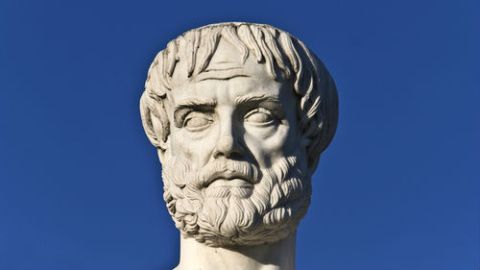Political Discourse for Adults: Introducing Praxis

Back in 2004, Jon Stewart famously hijacked CNN’s hyper-partisan “Crossfire” show, calling on the hosts to “stop, stop, stop, stop hurting America.” Rather than fostering real debate on the issues of our time, Stewart zinged, “Crossfire” offered “theater” and “partisan hackery.”
“Crossfire” was cancelled a few months later, but the quality of political discourse on CNN, MSNBC and Fox News has not risen appreciably in the seven years since the on-air fracas.
To paraphrase von Clausewitz, cable news shows are still, by and large, the continuation of politics by other means. We have one network on the right, another on the left and CNN playing host to talking heads from the right and the left. The result is a lot of mediocre punditry, heaps of shrill bloviation by invited guests and some very smart horserace analysis and giant iPad-esque “Magic Map” manipulation by people like CNN’s John King. But only rarely do we hear reflective, intelligent, reasoned discussion on the issues of the day.
The same is true of much of what passes as political commentary on the web. There are of course quite a few smart blogs out there. But for every Big Think, Harpers or Hannah Arendt Center blog, there are dozens of places where thoughtful, informed, in-depth analysis gives way to the incendiary and the ideological.
A word or two about the name of this blog. In his Eudemian Ethics Aristotle presents “praxis” as the fundamental capacity that distinguishes rational adult human beings from children and beasts:
Hence whereas in the case of the other animals the factor of force is simple, as it is in the case of inanimate objects, for animals do not possess rational principle and appetition in opposition to it, but live by their appetition, in man both forms of force are present—that is, at a certain age, the age to which we attribute action in the proper sense; for we do not speak of a child as acting, any more than a wild animal, but only a person who has attained to acting by rational calculation. (1224a28-30)
Lending it a more political valence, Hannah Arendt presents praxis as a defining characteristic of human action in the public realm. Seyla Benhabib summarizes Arendt’s position well in The Reluctant Modernism of Hannah Arendt (2000):
Praxis, speech and action, is the actuality, that is, the most accomplished ontological reality of beings such as humans are. Beasts have no praxis because they have no words; gods need no praxis because they have no need for company, for togetherness. Only bodily, dependent, and finite beings exist through words and deeds. Their mode of being is in the space of appearance created by the web of narratives and unfolding through the reality of words and deeds. (xliii)
In Praxis, I will offer contributions to the public discourse that look more deeply into unplumbed questions and unexamined assumptions of contemporary issues. I will use my training in political philosophy and law to shed different light and offer new perspectives on questions of religion, race, equality and education, among many other topics. My academic scholarship in political science strives to bring theory and practice together in revealing and mutually critical ways, and I will do the same — in more concise, more timely and more accessible terms — in my Praxis posts. My pre-Praxis pieces on Big Think give a sense of this approach. I’ve written about the implications of Rawlsian theory on the Occupy Wall Street movement, drawn upon Locke and Supreme Court jurisprudence to weigh in on the fight over contraceptives and critiqued Santorum’s stance on the separation of church and state by revisiting JFK’s speech.
My hope is that Praxis will be a forum for individuals to reason together, revealing themselves and staking out an identity in the virtual world with an eye to understanding and improving the world itself. I welcome your comments on my posts (and on the thoughts of other Big Think readers) and invite you to propose new topics when an issue seems to cry out for deeper examination.
Follow me on Twitter: @stevenmazie
Image courtesy of Panos Karapanagiotis/Shutterstock.com





